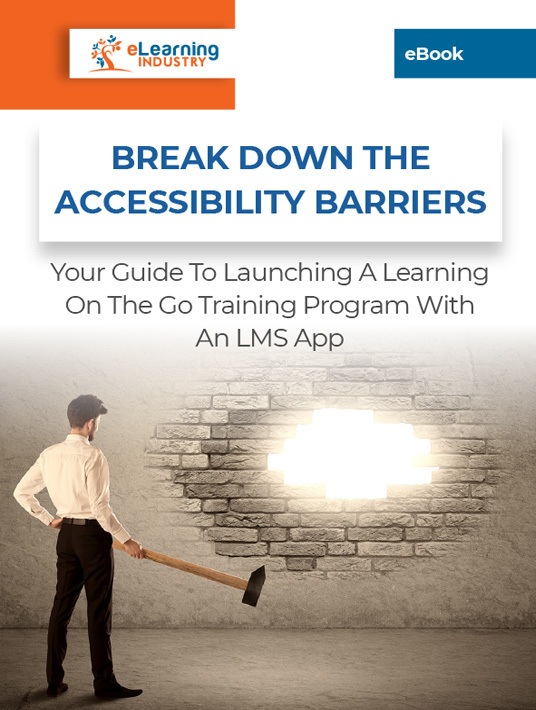How Offline Learning Apps Offer Your External Partners Anytime, Anywhere Learning Support
Remote sales teams, franchisees, eLearning content providers, and other members of your extended enterprise should have 24/7 access to online training tools. Namely, support resources that can help them align their work practices with your brand and learn about the latest products, as well as evaluate their own areas for improvement so that they can do something about it before it’s too late. Here are 7 ways that offline learning apps can give your external partners the seamless and multi-screen compatible support they need.

1. Offer On-The-Spot Product Knowledge
If you’re selling any sort of product or service, your external partners need to know about their features and specs. Even if they aren’t directly selling them to consumers. This is because they’re advocating your brand. They serve as the face of your organization remotely. Offline learning apps can be used to quickly deploy product knowledge and offer them on-the-spot support. For example, they can view demos or tutorials on how to use the product, then pass the information along to prospects.
2. Allow For Anytime, Anywhere Skill-Building
Your in-house employees are able to access the LMS to focus on skills they lack or hone their strengths. But offline learning apps give your external partners the same courtesy. They can fill gaps and cultivate their talents from anywhere in the world, and whenever it fits into their already busy schedule. For example, in the case of a client meeting disclosing a hidden communication or negotiation skills gap, partners would be able to simply access the offline app on their phone to address the issue head-on, without losing face or asking a manager for assistance. They can even cross-train to master new talents so that they’re prepared to take on more roles, or possibly join your organization in a full-time position.
3. Provide Up-To-Date Compliance Info
You don’t want your external partners to be the source of costly compliance slip-ups. Especially since they’re the ones who help boost the health of your bottom line by expanding your market reach. Offline learning apps give them the latest compliance info, so they can mitigate risks. Every time they resync with the system, their app is updated to reflect the newest policy changes, compliance issues, and regulatory revisions. Best of all, the app focuses on topics that pertain to their job duties so that it’s more relevant and engaging.
4. Give Partners The Power To Self-Assess
External partners usually don’t have the same level of one-on-one support as your in-house team. They’re flying solo, remotely pitching your products and providing customer care via live chats. However, they still deserve self-assessment eLearning tools that can help them identify areas for improvement discreetly and autonomously. Mobile pop quizzes pinpoint gaps in their knowledge base or performance issues they need to address in their self-paced online training. Before they can use offline learning apps to get the support they need, they must first identify the key areas of concern. Otherwise, they won’t be able to utilize the Learning Management System effectively to continually improve and pursue personalized online training paths.
5. Enable Them To Address Client/Customer Issues Immediately
In most cases, your external partners have to wait until they get back into the ''office'' to resolve customer issues. Or answer a question they had about the product or add-ons. With a mobile learning app, external partners can deal with these issues right away. The offline LMS gives them the ability to look up relevant information and troubleshooting tips. Thus, improving satisfaction rates and loyalty. Not to mention, helping you retain your top talent because you’re supplying them with all the tools they need to boost productivity.
6. Open Up Informal And Social Learning Opportunities
Traditional training doesn’t leave much room for informal learning. Particularly in the digital era when many of the training opportunities are found online. An offline learning app gives external partners access to informal and social learning tools. But they don’t necessarily need to be connected to reap the benefits. For example, they can participate in social media discussions when they are online, then complete follow up activities via the app. These can be simulations or scenarios that allow them to try out the next approaches they have learned from remote peers. They can even develop their own eLearning content and upload it to the online training library. For instance, they can record videos while they’re on the go to show off overlooked product benefits or new ways to promote it in client meetings.
7. Allow Them To Work On Personal Pain Points Without Geographical Limitations
Personalization is a running theme in mobile learning. Offline learning apps offer your external partners the chance to focus on personal pain points, whenever and wherever it works best for them. There are no geographical or scheduling limitations. There’s no Wi-Fi in your remote facility, but partners still need to prep for customer care calls? The offline app allows them to brush up on their skills and product know-how. They’re on a business flight and want to review company policy before they meet with a client to discuss contract terms? The offline LMS app gives them access to eLearning infographics, policy cheat sheets, and guides to refresh their memory.
Offline learning apps often get a bad rep for being difficult to track or falling short when it comes to employee motivation. After all, there’s no one to hold them accountable for falling behind. However, the right LMS gives you all the tools you need to boost engagement and monitor their performance. Plus, external partners have anytime, anywhere access to online training resources that bridge gaps and open up new informal eLearning opportunities.
Are you looking for an on-the-go LMS that provides anytime-anywhere support to your entire team? Download the eBook Break Down The Accessibility Barriers: Your Guide To Launching A Learning On-The-Go Training Program With An LMS App to discover secrets to use microlearning and mobile learning apps to improve knowledge retention on-the-go.







